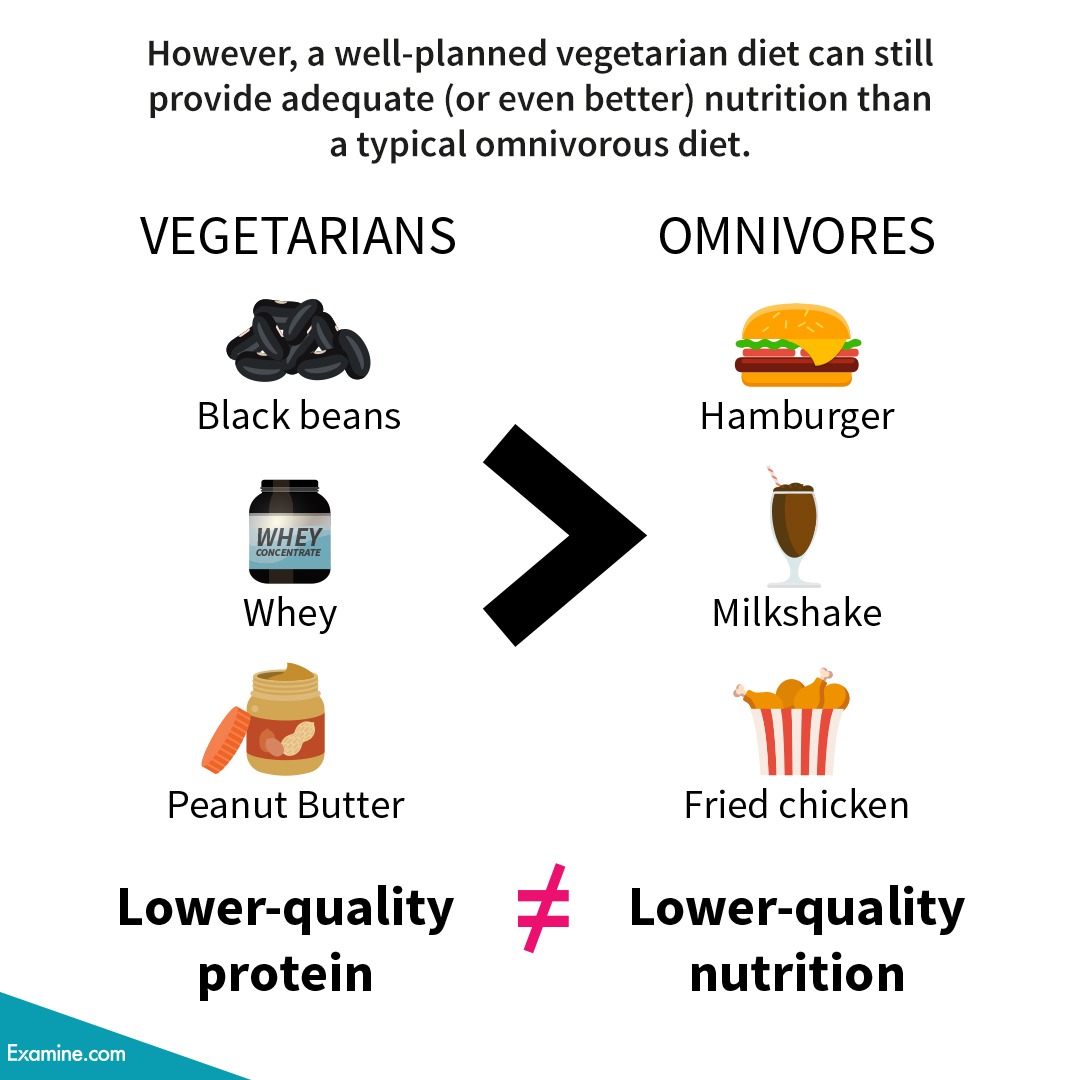
Here's our summary of a recent study on protein in vegetarian diets:
Lower protein quality leads to higher total protein requirements
Reference: PubMed ID 31835510
Lower protein quality leads to higher total protein requirements
Reference: PubMed ID 31835510

Background: Protein quality is a function of digestibility and amino acid content. Plant-based diets often consist of foods with lower protein quality, but then, what should a vegetarian or vegan do?
This study used a protein ranking system called the Digestible Indispensable Amino Acid Score (DIAAS) to assess the digestibility of various protein sources in 38 omnivores and 22 vegetarians.
The participants answered an extensive seven-day food questionnaire to compute the DIAAS of their food and had their lean body mass and strength recorded.
The results: The omnivores’ food had higher DIAAS and overall available protein than the vegetarians, and had more lean body mass and strength too.
In order for the vegetarians to get the same DIAAS and overall available protein as the omnivores, they would have to eat between 10 and 32 grams of extra protein daily.
Note: It is important not to misconstrue “lower protein quality” with “lower quality diet.” Vegetarians and vegans often have better overall health, particularly with regard to cardiovascular health and obesity.
This study emphasizes that, like vitamin B12 or iron, vegetarians and vegans must spend a little extra time ensuring their protein intake is adequate because of their restrictive diet.
We publish 150+ summaries of the latest research every month via Examine Personalized.
Check it out: examine.com/store/personal…
Check it out: examine.com/store/personal…
• • •
Missing some Tweet in this thread? You can try to
force a refresh







